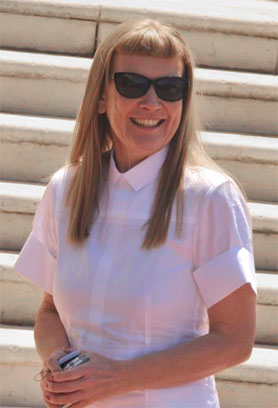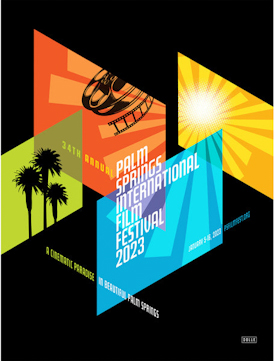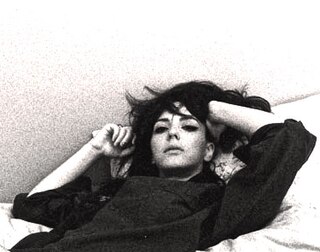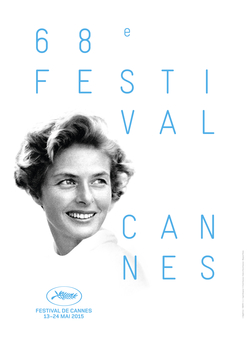Related Research Articles
The Melbourne International Film Festival (MIFF) is an annual film festival held over three weeks in Melbourne, Victoria, Australia. It was founded in 1952 and is one of the oldest film festivals in the world following the founding of the Venice Film Festival in 1932, Cannes Film Festival in 1939 and Berlin Film Festival in 1951.

David Dhalatnghu Gulpilil was an Australian actor and dancer. He was known for his roles in the films Walkabout (1971), Storm Boy (1976), The Last Wave (1977), Crocodile Dundee (1986), Rabbit-Proof Fence (2002), The Tracker (2002), and Australia (2008).

Jafar Panâhi is an Iranian film director, screenwriter, and film editor, commonly associated with the Iranian New Wave film movement. After several years of making short films and working as an assistant director for fellow Iranian filmmaker Abbas Kiarostami, Panahi achieved international recognition with his feature film debut, The White Balloon (1995). The film won the Caméra d'Or at the 1995 Cannes Film Festival, the first major award an Iranian film won at Cannes.

Euzhan Palcy is a French film director, screenwriter, and producer. Her films are known to explore themes of race, gender, and politics, with an emphasis on the perpetuated effects of colonialism. Palcy's first feature film Sugar Cane Alley received numerous awards, including the César Award for Best First Feature Film. With A Dry White Season (1989), she became the first black female director to have a film produced by a major Hollywood studio, MGM.
The Adelaide Film Festival is a film festival usually held for two weeks in mid-October in cinemas in Adelaide, South Australia. Originally presented biennially in March from 2003, since 2013 AFF has been held in October. Subject to funding, the festival has staged full or briefer events in alternating years; some form of event has taken place every year since 2015. From 2022 it takes place annually. It has a strong focus on local South Australian and Australian produced content, with the Adelaide Film Festival Investment Fund (AFFIF) established to fund investment in Australian films.
Women's cinema primarily describes cinematic works directed by women filmmakers. The works themselves do not have to be stories specifically about women, and the target audience can be varied.

Lebanese Australians refers to citizens or permanent residents of Australia of Lebanese ancestry. The population is diverse, having a large Christian religious base, being mostly Maronite Catholics, while also having a large Muslim group of Sunni and Shia branches.

Nadine Labaki is a Lebanese and Canadian actress, director, and activist. Labaki first came into the spotlight as an actress in the early 2000s. Her filmmaking career began in 2007 after the release of her debut film, Caramel, which premiered at the Cannes Film Festival. She is known for demonstrating everyday aspects of Lebanese life and covering a range of political issues such as war, poverty, and feminism. She is the first female Arab director to be nominated for an Oscar in the category for Best Foreign Language Film for her third directorial effort, Capernaum (2018).

Andrea Patricia Arnold OBE is an English filmmaker and former actress. She won an Academy Award for her short film Wasp in 2005. Her feature films include Red Road (2006), Fish Tank (2009), and American Honey (2016), all of which have won the Jury Prize at the Cannes Film Festival. Arnold has also directed four episodes of the Amazon Prime Video series Transparent, as well as all seven episodes of the second season of the HBO series Big Little Lies. Her documentary Cow premiered at the 2021 Cannes Film Festival and played at the 2021 Telluride Film Festival.

Palm Springs International Film Festival is a film festival held in Palm Springs, California. Originally promoted by Mayor Sonny Bono and then sponsored by Nortel, it started in 1989 and is held annually in January. It is run by the Palm Springs International Film Society, which also runs the Palm Springs International Festival of Short Films (ShortFest), a festival of short films and film market in June.

The 60th Cannes Film Festival was held from 16 to 27 May 2007. British filmmaker Stephen Frears served as jury president for the main competition. Romanian filmmaker Cristian Mungiu won the Palme d'Or for the drama film 4 Months, 3 Weeks and 2 Days.

The cinema of Lebanon, according to film critic and historian Roy Armes, is the only other cinema in the Arabic-speaking region, beside Egypt's, that could amount to a national cinema. Cinema in Lebanon has been in existence since the 1920s, and the country has produced more than 500 films.

Merzak Allouache is an Algerian film director and screenwriter. His 1976 film Omar Gatlato was later entered into the 10th Moscow International Film Festival where it won the Silver Prize. His 1996 Salut cousin! was submitted to the 69th Academy Awards in the category of Best Foreign Language Film. He is one of the most influential Algerian filmmakers, considered by some to be the most important. He is the only Algerian filmmaker who devoted most, if not all, of his cinematic work to his native country.

Warwick Thornton is an Australian film director, screenwriter, and cinematographer. His debut feature film Samson and Delilah won the Caméra d'Or at the 2009 Cannes Film Festival and the award for Best Film at the Asia Pacific Screen Awards. He also won the Asia Pacific Screen Award for Best Film in 2017 for Sweet Country.

The UK Jewish Film Festival is an annual film festival dedicated to world cinema that explores Jewish life, history and culture worldwide. It was founded in 1997 and takes place in November, in London and in other cities in the United Kingdom.

Monia Chokri is a Canadian actress and filmmaker.

The 68th Cannes Film Festival took place from 13 to 24 May 2015. Ethan and Joel Coen were the Co-Presidents of the Jury for the main competition, marking the first time that two people co-chaired the jury. Since the Coen brothers each received a separate vote, they were joined by seven other jurors to form the customary nine-juror panel. French actor Lambert Wilson was the host for the opening and closing ceremonies.
Heiny Srour is a Lebanese film director. She is best known for being the first female Arab filmmaker to have a film chosen for the Cannes Film Festival. Srour advocated for women's rights through her films, her writing, and by funding other filmmakers.
Lebanon... Imprisoned Splendour; is a documentary film written and produced by Daizy Gedeon, covering Lebanon and its history. In the film, several political figures were interviewed by Gedeon, including Jean Obeid, Samir Geagea, Amine Gemayel and Walid Jumblatt. The film also stars Egyptian-Lebanese actor Omar Sharif.
Enough! Lebanon's Darkest Hour is a 2021 feature documentary film written and directed by Lebanese-Australian filmmaker Daizy Gedeon.
References
- ↑ Manganaro, Elise Salem (1998). "Lebanon: Imprisoned Splendour". Review of Middle East Studies. 32 (1): 130–131. doi:10.1017/S0026318400037007. ISSN 0026-3184.
- 1 2 "Lebanon Imprisoned". Beirut International Film Festival. Retrieved 24 July 2021.
- ↑ Frater, Patrick (9 July 2021). "Better World Fund Prize Winner Daizy Gedeon Highlights Kleptocracy in Lebanon Documentary 'Enough'". Variety. Retrieved 24 July 2021.
- ↑ "Playing the strategy game at the Cannes international market | ScreenHub Australia - Film & Television Jobs, News, Reviews & Screen Industry Data". ScreenHub Australia. 22 July 2021. Archived from the original on 9 January 2023. Retrieved 24 July 2021.
- 1 2 Slatter, Sean (8 July 2021). "Daizy Gedeon to receive award at Cannes gala event". IF Magazine. Retrieved 24 July 2021.
- 1 2 "Best for Fests Enough! Lebanon's Darkest Hour - Daizy Gedeon Director's bio". www.filmfestivals.com. 4 July 2021. Retrieved 24 July 2021.
- ↑ "A Tribute to the People of Lebanon". Los Angeles Times. 25 September 1997. Retrieved 24 July 2021.
- ↑ "Daizy Gedeon to Receive the 'Movie That Matters Award'". www.lofficiel.at. Retrieved 24 July 2021.
- ↑ "Lebanese filmmaker 'honored' to receive prestigious award in Cannes". Arab News. 22 July 2021. Retrieved 24 July 2021.
- ↑ "Better World Fund Prize Winner Daizy Gedeon Highlights Kleptocracy in Lebanon Documentary 'Enough'". ca.movies.yahoo.com. Retrieved 24 July 2021.
- ↑ "Daizy Gedeon". IMDb. Retrieved 24 July 2021.
- ↑ "Lebanon...Imprisoned Splendour (1996) - The Screen Guide - Screen Australia". www.screenaustralia.gov.au. Retrieved 24 July 2021.